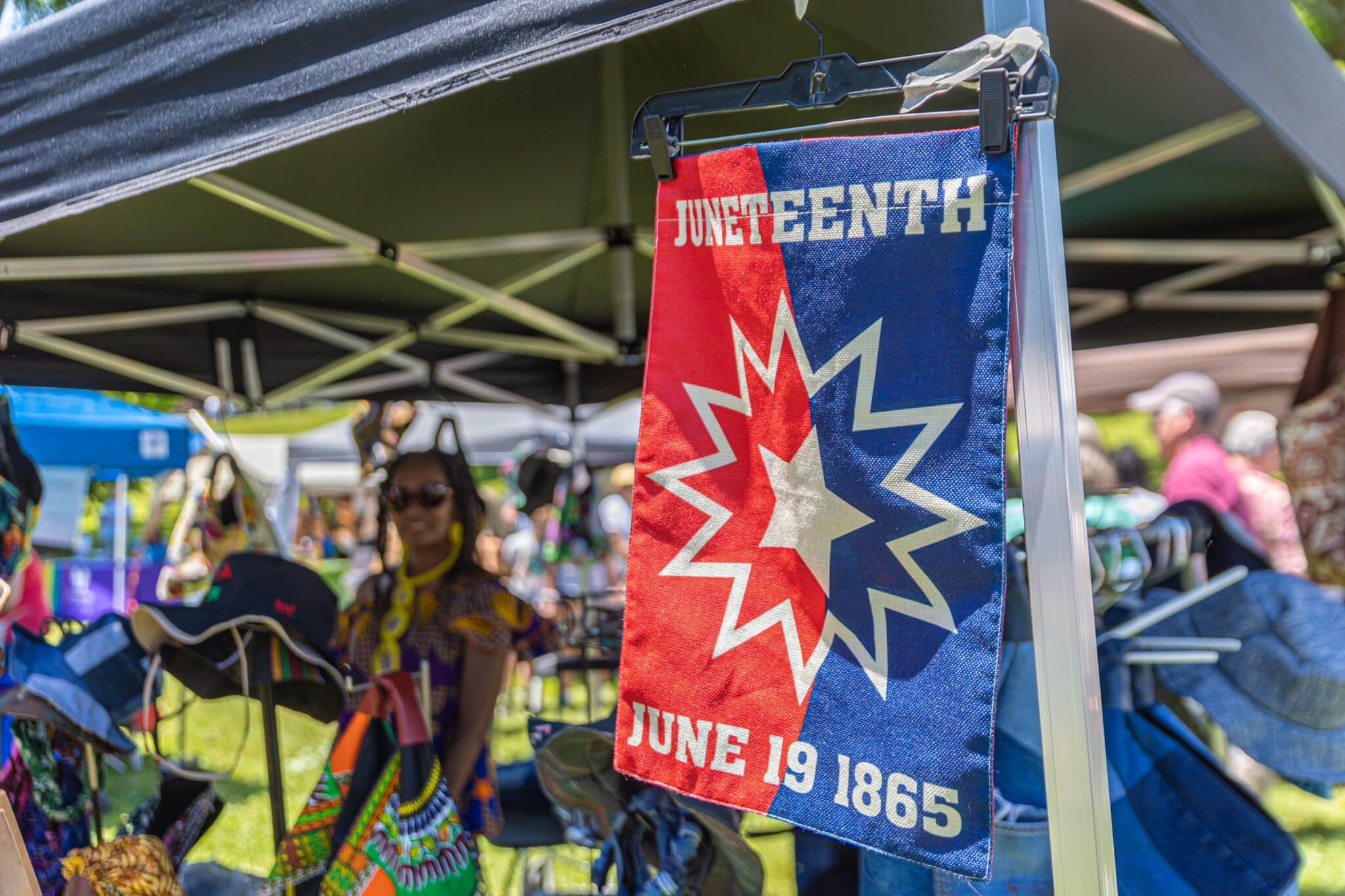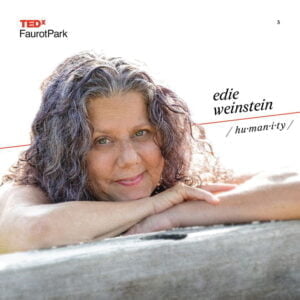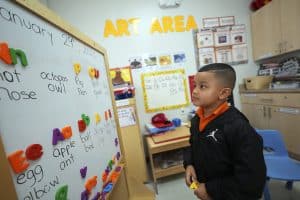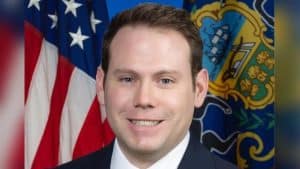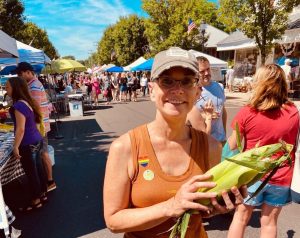Last year, I had the opportunity to honor many of my dearly held values of respect, unity, diversity, equal opportunity, peaceful interactions, physical and emotional safety in the world, at the first annual Juneteenth celebration at the Mercer Museum. The day was filled with music, dance, education, advocacy, food, and connection. I had the thought that in the haven of the grounds of this jewel in Doylestown, people of many skin hues, cultures, spiritual practices, ages, level of education, gender identity, socio-economic background, and sexual orientation, we could practice what I would like to see ripple forth into the rest of the world.
The second annual Juneteenth celebration is June 18 from 10:30 a.m. to 4:00 p.m., presented by Doylestown Juneteenth, African Diaspora Collective in Bucks County, The Pair UP Society, Bucks County Anti-Racism Coalition, and Bucks County NAACP.
Angela Nutter, who is one of the organizers of our Juneteenth event, describes herself this way: the founder and director/president of Doylestown Juneteenth, a Doylestown resident, Central Bucks School District alum/survivor, someone who dances for fun, a cheerleader of literacy and libraries, a trained chef, an organic gardener, a mom, wife, sister, and daughter.
She is also a seemingly tireless advocate and force for good in the world.
Edie Weinstein: For those who are not familiar with the holiday, please explain what Juneteenth is.
Angela Nutter: Juneteenth is a holiday borne from the belated emancipation of more than 200,000 enslaved Black men, women, and children in Texas. The original Emancipation Proclamation was decreed on January 1, 1863. It wasn’t until Union troops arrived in Galveston Bay, Texas, 2 1/2 years later, that word finally got to countless people that they were, in fact, free.
Edie: Why is it important for it to be celebrated in the larger community?
Angela: The celebration of this holiday has garnered the national spotlight since its elevation to a federal holiday. Up until recently, Juneteenth, also called Freedom Day, Emancipation Day, Jubilee Day, or Black Independence Day, was celebrated within Black communities, with origins in the South, and radiated outwards from there into other regions of the country. Now that Juneteenth is recognized as a federal holiday, it needs to be recognized for what it is, a celebration of long-delayed freedom from enslavement. There needs to be an acknowledgement and understanding as to why certain parts of society wished to deny human rights to others, how not recognizing and learning from that can haunt us for generations.
Edie: How did you come to be on the planning team along with Adrienne King and Kevin E. Leven?
Angela: In the Spring of 2021, Doylestown Township passed a Juneteenth Freedom Day resolution. I was not sure if this resolution had a meaning beyond words, so I started reaching out to local officials for answers. When no specifics were forthcoming, I resolved to make sure there was action and tangible results beyond the words, and (most importantly) that this holiday had appropriate representation. I began building the framework for tenets that are important to the holiday, what it stood for, and how best to amplify the Black experience in Bucks County. I assembled a small group, and after some time reached out to Kevin, who eventually recommended Adrienne as a planning partner. Our combination of energies, talents, and personal and professional connections help build this event upon the original foundation. It ultimately was an experience that exceeded any of our expectations.

Edie: How do you respond to people who would call education about Black history, Critical Race Theory?
Angela: I would say that those people lack a general comprehension of the difference between records of lived history versus a curriculum used in an academic setting. Education happens in settings both in and outside the classroom, and “Critical Race Theory” has become an all-encompassing buzz phrase for anything not seen as Eurocentric. To view history through a whitewashed lens, using a hot-button term, there is an immediate dismissal of the historical and systemic mistreatment of entire 12 percent of the country’s population. Revised or cherry-picked education ensures we put ourselves in the position to continue generational damage to the marginalized and the uneducated.
Edie: What is the African Diaspora Collective and what role do they play in creating the Juneteenth event in Doylestown?
Angela: African Diaspora Collective is the name we use for the umbrella under which we operate both cohesively and independently. Currently it is a small group, composed of myself, Adrienne, and Kevin. We hope to grow this group organically, by elevating Black voices in Bucks County and continuing community events to bring people together, with the goal of learning, understanding, and fun!
Edie: How did you feel after last year’s event?
Angela: I felt tired first and foremost! The planning from the first call to Doylestown Township to the day of the event was all-encompassing for over a year. I felt satisfaction. I grew up here and along with my family experienced the polite racism of our community continually over the years. This was a day that not only my voice, but older folk from the community finally felt seen and heard. I felt relief. Being that this was an unprecedented event in a place like Central Bucks, not known for its diversity, there were a lot of questions about how it would be received. There were legitimate safety concerns, as the celebration was in the immediate aftermath of the heinous hate-inspired murder of numerous innocent Black people at a grocery store in Buffalo, New York. There were a lot of conversations, and I fielded a few calls wondering if it was prudent to continue with plans for the celebration.
Edie: What would you like people to take away from this year’s celebration?
Angela: Celebrate our differences. While Black culture is not monolithic, there are commonalities that are woven like threads through all of our lives. Our Juneteenth celebration is for the entire community. However, it is important to come with the intent to learn, support, and respect this space and experience that we are sharing.
Edie: Please share about the highlights at this year’s event. What kinds of performers and speakers will be there?
Angela: This year will be a continuation of building upon the foundation of the celebration’s core principles, in order to build up Black families and community here in Bucks County.
Faith: The day will start off with Second Baptist Church of Doylestown returning to lead a worship service under our main tent on the green at the Mercer Museum. All are welcome.
Education: During the day we will have two speakers in the Elkins Gallery of Mercer Museum. Our first speaker will host a community conversation about the different ways Freedom Day, Emancipation Day, or Jubilee Day have been observed. It will be a time to interact and share conversation in a more intimate setting. Our second speaker will issue a call to action around current events in our county’s education systems.
Entertainment: We will have live music, welcoming back Shalom Mukamuri to perform under the tent. DJ Tone Arm will also be taking to the turntables for an afternoon of dancing because this is a celebration, after all!
Economic Empowerment: We will be hosting a multitude of Black-owned businesses, artists, crafters, and food trucks. Come hungry and come ready to shop!
Edie: How do you differentiate between cultural appreciation and cultural appropriation?
Angela: One definition of Appreciation is, “To recognize the full worth of… .” Based on that definition and personal experience I would say that many aspire to that, but it takes a very intentional mindset. Appropriation is described as, “taking something for one’s own use, typically without the owner’s permission.” For countless years elements of Black life have been stolen, repackaged, monetized, and resold without acknowledgement or understanding of origins, historical reverence, or practicalities. It does harm and dishonors those who are being robbed of their culture.
Edie: How did you become a social justice advocate?
Angela: I do not necessarily consider myself a social justice advocate. I do not like titles or being typecast in any specific way. My mission has always been to serve others, to improve my community, and to show my family that we have a voice. That may look like volunteerism, networking, or making connections between others. Much of what I do is part of my process to overcome the trauma of lived experiences in this community. If it looks like organizing a dance party on the courthouse lawn, marching in a protest, highlighting marginalized voices, joining a community action agency, helping with education-based initiatives, or partnering with a local museum and having a huge public celebration, well, that’s just me finding my voice.
